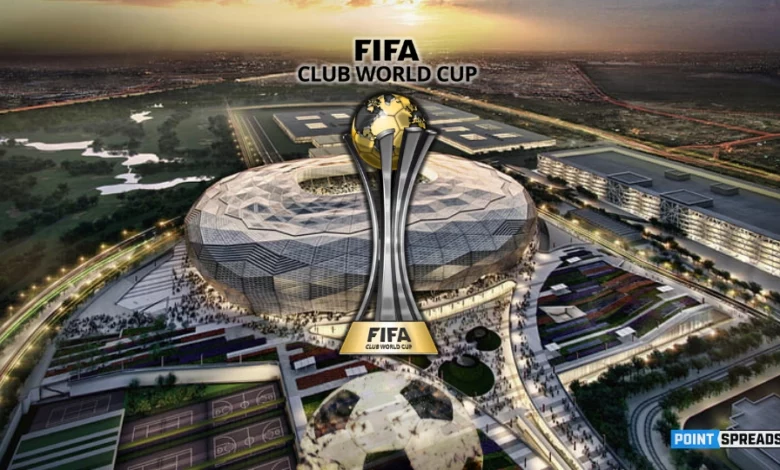The Evolution of the FIFA Club World Cup
Letting Lesser-Known Teams Have a Go at It

The FIFA Club World Cup is a prestigious international competition that brings together the elite of club soccer from across the globe. Organized by the Fédération Internationale de Football Association (FIFA), the tournament has been a platform for the world’s best clubs since its inception in the year 2000.
Over the years, the competition has evolved in format, with the number of teams participating having expanded to 32 for the upcoming tournament, thus representing six different confederations, to bridge the gap between continents.
History: Genesis and Evolution
The concept of a club world championship was not new to FIFA. The late 19th century saw clubs from different countries compete in various formats, aspiring to unofficially crown the world’s best.
However, the formal proposal for such a tournament came in December 1993, during a FIFA executive committee meeting in Las Vegas, Nevada, marking the beginning of the journey towards establishing the FIFA Club World Cup.
The inaugural tournament was hosted in Brazil in 2000, featuring clubs from different continents. Despite facing challenges, including a hiatus from 2001 to 2004 primarily due to the collapse of FIFA’s marketing partner, the competition found its footing and has been held annually since 2005.
The integration of the Intercontinental Cup in 2005 marked a significant milestone, solidifying the position of the FIFA Club World Cup as the definitive competition for crowning the world’s best club.
Changes in Tournament Format
The format of the FIFA Club World Cup has seen several revisions over the years, adapting to the changing landscape of international club soccer.
Initially, the tournament included the champions of each continent’s premier club competition, alongside the host nation’s league champion. This format fostered a direct knockout competition, culminating in a final that decides the world champion.
The evolution of the tournament structure has been aimed at inclusivity and global representation, to make sure champions from all FIFA-recognized confederations have the opportunity to compete. This approach provides a platform for clubs from lesser-known soccer regions to also make their mark globally.
Teams: Heart of the Tournament
Real Madrid’s distinction as the most successful club in the tournament’s history, with five titles, epitomizes the excellence and competition that the FIFA Club World Cup embodies. In fact, clubs from Spain have been particularly dominant, securing the most victories by country.The international body announced a reorganized format starting from FIFA Club World Cup 2025, expanding the tournament to 32 teams. These are those 32 teams which have qualified for the Club World Cup 2025.
| Federation | Teams |
|---|---|
| AFC | Al Hilal, Urawa Red Diamonds, Winners of the 2023-24 AFC Champions League, TBC |
| CAF | Al Ahly, Wydad Casablanca, Winners of the 2023-24 CAF Champions League, TBC |
| CONMEBOL | Palmeiras, Fluminense, Flamengo, Winners of the 2024 Copa Libertadores, TBC |
| OFC | Auckland City |
| UEFA | Chelsea, Real Madrid, Manchester City, Bayern Munich, PSG, Inter, Porto, Benfica, Borussia Dortmund, Juventus, Winners of the 2023-24 Champions League, TBC |
| CONCACAF (Host) | Monterrey, Seattle Sounders, Leon, Winners of the 2024 CONCACAF Champions League, TBC |
Last updated: March 13, 2024
These 32 teams are competing in the 2025 Club World Cup, selected from six different confederations: UEFA, with the most representatives, 12 slots, followed by CONMEBOL, with six places. The AFC and CAF each boast four slots. CONCACAF is ordinarily allotted four slots, but gets an extra one in 2025 for being a host. The OFC gets a single slot to vie for the FIFA Club World Cup champion.
Record Holders: Individual Brilliance
The FIFA Club World Cup results have also been the stage for players from several clubs who give it their all.
Toni Kroos leads as the most decorated player, contributing to six titles across his tenure with Bayern Munich and Real Madrid. Not far behind are Karim Benzema, Daniel Carvajal, Nacho Fernández, and several others from Real Madrid, each boasting five titles. Mateo Kovacic’s quest across clubs like Real Madrid, Chelsea FC, and Manchester City has earned him four titles.
From defense to attack, players like Gerard Piqué, Sergio Busquets, and Andrés Iniesta have been instrumental in FC Barcelona’s success, each securing three titles. Dani Alves and Lionel Messi also share this honor.
FIFA Club World Cup Format Expansion
The recent announcement of the tournament’s expansion to 32 teams in 2025 marks a significant evolution in the FIFA Club World Cup’s format. This change aims to bring a broader spectrum of clubs into the fold, offering a more inclusive and competitive environment with the United States set to host the 2025 edition all the way to the FIFA Club World Cup final.
As the FIFA Club World Cup continues to evolve, it remains a unique fixture in the international soccer calendar. Edging closer to the FIFA Club World Cup 2025, soccer predictions are heating up. The culmination of European tournaments has set the stage, with UEFA news indicating strong contenders emerging from the continent.
With scores and odds constantly updated, it’s a good idea to keenly analyze every piece of information, from team form to player injuries, to make informed picks and parlays. The anticipation builds not only around the spectacle but also to bet online.
Stay put at the PointSpreads soccer betting news front, where we get the best FIFA Club World Cup Odds and the freshest FIFA Club World Cup schedule plus Club World Cup standings to spruce up your wagering!

